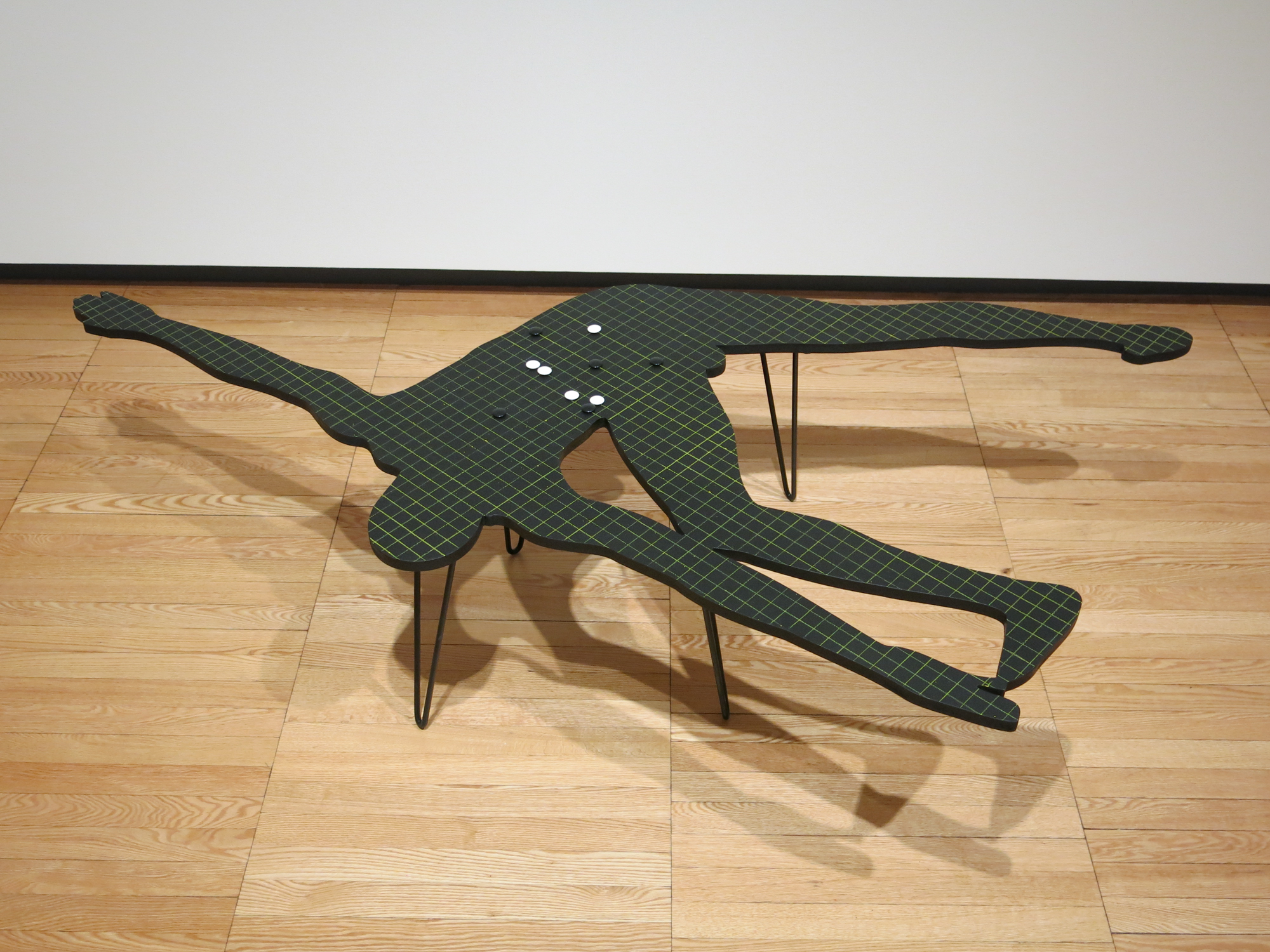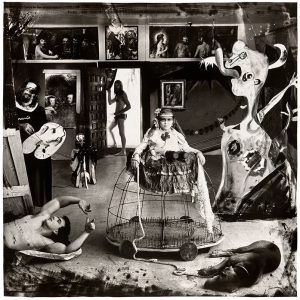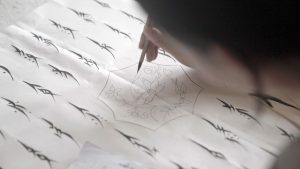This is the fourth in a series of articles made in collaboration with the Chicago Arts Census to explore the living, labor, and material realities of art workers in the city of Chicago. Click here to read the other articles in this series. Please visit the Chicago Arts Census website to learn more about the Census, how to get involved, and to take the survey.
Making a living off of your artwork is the dream for many artists. What happens when achieving that dream puts the rest of your life in a tailspin? Securing funding as an artist can be challenging to begin with. Layer on the need to balance what funding you can and cannot accept in order to maintain critical benefits — such as social security and health care — and that support becomes a double-edged sword. This is the dilemma many artists with disabilities and chronic illnesses find themselves in. In a recent conversation with five Chicago-based artists and arts administrators, we discuss barriers they’ve encountered when receiving support, creative solutions to these challenges, and what they hope individuals and organizations will keep in mind when supporting disabled artists.
Courtney Graham: I’m really honored that this group has offered to share their experiences with me and with each other. So, let’s jump into some introductions.
Sandie Yi: Hello, everyone! This is Sandie, I go by she/her, and I’m the co-director for Bodies of Work with Carrie, and I teach art therapy and counseling at the School of the Art Institute of Chicago at the moment, and I also have a position as the arts and cultural coordinator at Access Living.
Carrie Sandahl: Hello, everyone, I’m Carrie Sandahl. I go by she/her pronouns, and co-director of Bodies of Work with Sandie. I’m a disabled artist, do research on disability in the arts, and run an artist residency program for disabled artists called the 3Arts/Bodies of Work Residency Fellowship.
Andy Slater: Hey everybody, I’m Andy Slater. He/him are my pronouns. I am an artist. I am blind. I actually worked on the Chicago Arts Census as a part of the [research and development] team.
Max Guy: Hey everybody. My name is Max Guy, I’m an artist and I have type one diabetes so I think that’s how you know I kind of fit in this context, and I work as Manager of Institutional Giving at Hyde Park Art Center. And I’ve been teaching as a lecturer at the Art Institute of Chicago for about a year.
Anonymous: Thanks. I’m an artist, I’m disabled, and I think I’ll leave it there. [Editor’s note: This artist asked to remain anonymous because many people in their immediate community do not look kindly on, and often heavily stigmatize, persons with disabilities. Sixty acknowledges and respects the artist’s preference in this regard, and thought it’d still be germane to include their perspective because it illustrates an additional intersecting layer of support (or lack thereof) that disabled artists have to contend with based on other aspects of their identity.]
Courtney Graham: Thank you, everyone, let’s jump into our discussion. To start, you know navigating systems of support can be especially challenging for artists with disabilities. Could you share a little bit about how balancing things like grants or fellowships with other benefits has impacted you?
Andy Slater: I’ve been on social security disability insurance [SSDI] since 2005, which is I guess an upgrade from SSI [Supplemental Security Income]. With that you also get Medicare as opposed to Medicaid, there’s a lot more freedom, you can earn more money, and there’s just kind of more of this sort of security to it. I’ve been receiving it since then and it can be absolutely mind-destroyingly confusing as to what some of the rules are depending on your benefits, because you have earning caps every month.
Over the past 2 or 3 years I’ve been able to receive a couple grants. Now I’m trying to navigate how this might affect whether or not I continue to receive benefits. The most important thing to me is keeping my Medicare. I also have a dependent, my son, who receives monthly benefits and insurance. Something like getting a grant might be more than I’m allowed to earn each month and could kick me off. So I’m currently trying to navigate that, and I thought I had answers, and then it totally depends on who you talk to. You go to one person, and they say ‘oh, no it’s fine don’t worry about it.’ The other says, ‘oh, well, you need to go down to the office, because I think that you’re going to either have to lose your social security or pay money back.’ So it gets really dicey and I’m really not sure where I’ll end up, what kind of guidance I’ll get from social security. If there’s any kind of agency out there that can help mediate or provide resources and answers that would help. I’ve never had that education, because I never had the opportunity to receive these grants and fellowships and things like that, and it gets very confusing.
There’s also the stigma and fear that something’s going to happen if you accept money. My experience, basically, is always wanting this and one of my goals is to be able to earn income and survive on my art. It might be getting to that point. But then, what are the consequences going to be? I lose my social security? Wishing that there was some kind of support system outside of social security administration to help us navigate. That would be great.
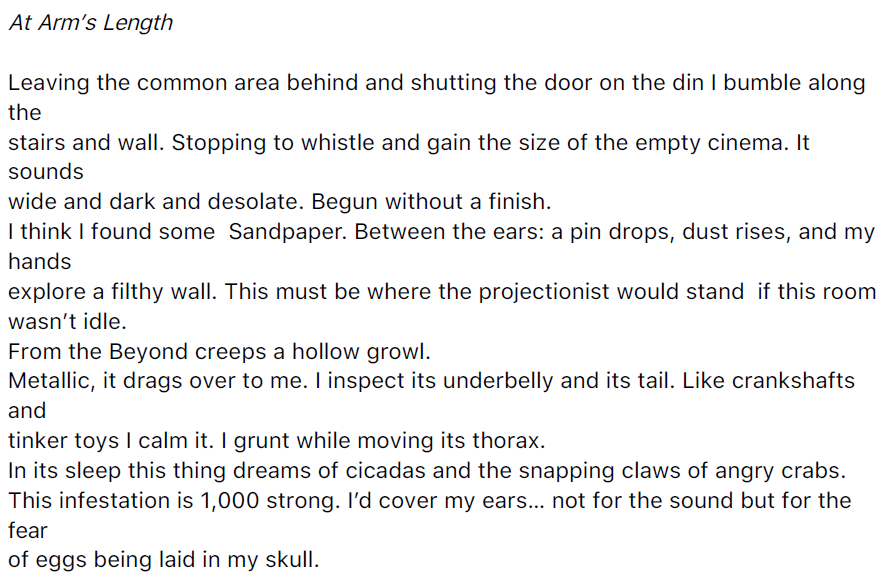
Courtney Graham: That just sounds really volatile. As opportunities arise, you want to be able to take advantage of them in terms of participating in exhibitions and all kinds of things. That sounds super frustrating.
Max Guy: I’ve just had to seek full-time employment because I don’t really know anything about government-supported benefits for people with chronic illness. My prescriptions, at times, end up costing more than my rent itself.
Anonymous: Let’s get into grants. Say you get a grant or a stipend, it is unearned income, you didn’t earn the money by working for them. But the people giving you the grant give you a 1099 [tax form] because they need to show that stipend as an expense. Well, that may mean you become self-employed and it can affect your benefits. Someone stated earlier, prescriptions end up costing more than rent. If you lose that much needed medical insurance, how are you going to be able to pay for that medication? It’s difficult to answer.
Carrie Sandahl: One thing I’m hearing is ‘what is a disability?’ I think a lot of things the readers probably don’t understand is the definition changes dramatically depending on where you’re looking. I think by most anybody’s definition, I’m disabled. I have a physical impairment and a lot of difficulty getting around. You know I’ve got my disabled parking placard, all the disability things. But if I were to go to Social Security for assistance, I would not be disabled because I can work. I’m privileged to have an academic job. But let’s say I lost my job, didn’t have health insurance, and I didn’t have any backup support. To get Social Security Disability Income, I would have to be unable to work at all for a year from the time I became disabled. The process can include a waiting period, or a “medical hold,” if Social Security determines that you might get better and thus be able to work, leaving you in limbo.
The other thing the government doesn’t understand is how artists earn income. Most artists earn money sporadically. You can have a windfall, then not make money again for a year, but that windfall could be enough to kick you off your benefits. Then you have to go through a process of trying to get it back. You’re basically punished for having sold some of your work.
Anonymous: I think we have to question who were the people in power that decided if you have a disability, you’re not going to be able to work? Because clearly that’s not the case, it may be the case for some people but different disabilities means different ways of working. With advanced medical technology, and treatment, people that were considered terminal are able to live with chronic conditions.
Andy Slater: With the Bureau of Blind Services, part of the Department of Rehab Services, in order to keep a case open to get help with getting new glasses or a cane, I had to actively be searching for a job. I wanted to do art, work in my field and my medium of sound and technology. My case worker called that a niche thing. I wanted to go back and get my degree from the School of the Art Institute, I want to go to grad school at Northwestern. ‘Why do you want to do that? You’re blind, you can’t do that kind of thing,’ was the attitude. They have no reference to somebody that wants to work in a creative field and their whole thing was wanting you to earn income and get off of social security. But the only thing they offer you is a $10 an hour job working for the Indiana toll department or whatever. Those are the people making the rules and the laws and they just don’t understand what somebody like myself wants to do, and can do successfully. We have to check every box on the state level, do all this paperwork, as opposed to helping a disabled person follow the career path they want and make their life better. You know there’s nothing really done to help somebody reach the quality of life they want to live. They just want to get you to work some minimum wage job so they can check a box.
Max Guy: I am one of those lucky people who graduated college and they had just extended the amount of time under which you could be under your parents insurance to 27. So you know I got out of school 2011, I found a full-time job. I think a lot of opportunities that I’ve seen in the arts have been kind of foregone, for trying to receive steady income, regardless of whether or not it was reported to a bureau, or what have you. But really just so that I can be insured. But I think my trajectory has largely been trying to advance in the arts nonprofit sector so that I have the medical care that I need. While I love the work, I do think that I would have taken a lot more risk throughout my entire career.
Anonymous: But Max, are you surviving, or are you thriving?
Max Guy: That’s a good question. I have a studio, I can afford a lot of things. I can afford my health insurance now, and you know all of my medications on top of you know, having a space to be creative, paying down a car. But what’s missing is really the time to actually make the work and to be the artist that I want to be. Yeah, so in that sense I would say surviving.
Sandie Yi: I actually am not eligible to apply for most of the grants from this country. I’m from Taiwan. So, most of my experiences in terms of grants or fellowships have been limited. If it’s only applicable to US citizens or green card holders, you’re not eligible. So, that’s easy for me, I don’t even need to apply because I can’t.
Courtney Graham: Thank you, Sandie, for mentioning that additional element. Obviously, you know, different requirements for different opportunities is a whole other complicated piece. I would love to hear from Sandie and Carrie a little bit about how Bodies of Work has been navigating this – about some of the creative solutions and workarounds that you all have been able to employ in terms of coming up against these barriers.
Carrie Sandahl: With the artist residency, I have been able to work out payment plans through the university [UIC], taking into consideration the state guidelines for procurement and contracting, to pay artists on a schedule that won’t put their benefits in jeopardy. I usually work with the artist to see what they are allowed to earn and not earn in a certain period of time; sometimes it’s per year, sometimes it’s per month. Each artist can have a different situation, so what you work out with one, probably won’t work for the next.
I’ve had to become creative on timing. The year a contract is written and the year an invoice is submitted, for instance, might help the artist receive payment in two different calendar years.
Sandie Yi: When I started working with Carrie, I was a grad student. I learned that this system is really complicated, and we have to be creative. For example, if there were things that UIC couldn’t pay, then we might work with Access Living and they could issue checks in a way that’s easier to manage, easier than in a university setting. So, we partner with different organizations and say ‘how we can support this event, or this program, or this artist together?’ Right now, working in my department, I run a Disability Culture Activism Lab. I want to get artists and activists paid and I noticed in the beginning, there was a question ‘why are we paying community organizers?’ Because I think the school is much more familiar with paying artists. So I just recognize them as artists. I have to find the language the funder or gatekeeper understands.
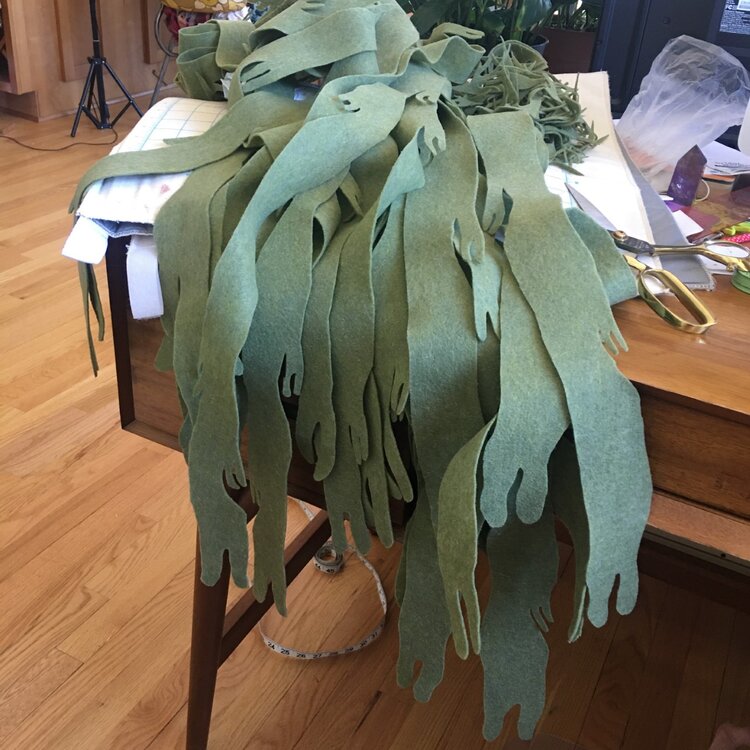
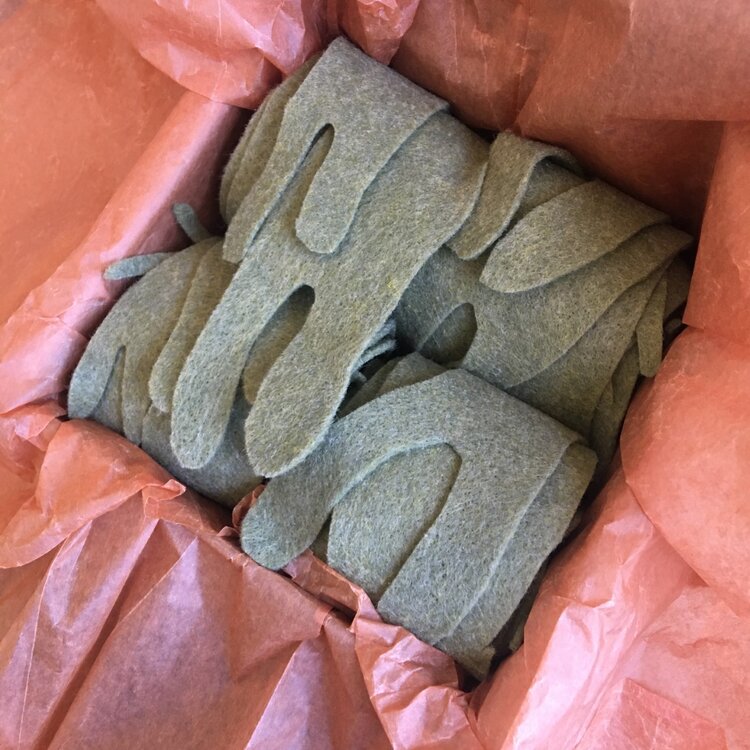
Carrie Sandahl: Sometimes artists might appreciate having resources that aren’t cash coming their way. If you’re an organization that might have something that is worthwhile for an artist, maybe barter. Offer them use of a studio, free season tickets, conference or workshop fees – whatever the artist might value over cash (of their choosing).
Courtney Graham: Thank you, Carrie. I’d love to hear from others. What do you wish funding organizations took into account when supporting you?
Max Guy: I mean the longest grant I’ve ever seen is 5 years and then maybe it’s up for renewal. Let’s say a residency or fellowship is insured, that’s great actually. But I’m just trying to think about the resources versus the time frame of any kind of government, corporate or otherwise institutional support. Because it seems like the kind of issue where disability doesn’t go away in a year. It doesn’t go away in 2 years. It doesn’t go away like after the duration of any kind of institutional support.
Carrie Sandahl: One of the things we started to do because of getting feedback like Max just shared with us, is trying to look for multiple opportunities for artists. Connecting with other organizations so we might collaborate to provide back-to-back opportunities.
Max Guy: Perhaps during the duration of a grant or any kind of support system, there is also education on how to develop something a little more sustainable, like post-support. Some kind of instruction or available resources to kind of continue sustaining your practice.
Anonymous: I know somebody who relies on Medicare and Medicaid and they asked their partner ‘Hey? Can you put me on as a partner for your insurance?’ And the partner was like, ‘Sure, let me look into it,’ and the partner says I can’t afford to put you on my insurance, the premium would be too high. And this partner is doing pretty well financially right.
Max Guy: That’s actually something that I go through. Yeah, my partner, the able-bodied person in our relationship, does not have full-time employment and does not have insurance from a corporation or non-profit. However, it would be more expensive to add them to my policy than it would be for them to find insurance of their own. It’s assuming that anybody who’s added to my policy will have the same needs. I’ve had to navigate this since I was in my early twenties, I’m a pretty competent insurance broker in my own right.
Anonymous: And you said this is an able-bodied person, so imagine the nuances of what a person with a disability would need, and how much more that premium would increase.
Carrie Sandahl: I was talking with an artist a couple days ago who said something that just really hit me. She said she never wanted anybody again to ask her for a phone call to ‘just pick her brain.’ The idea that disabled people are available at all times to basically do free consulting because it’s helping other disabled people can be exploitative. If possible, it is best to offer disabled people compensation for their expertise.
Andy Slater: There’ve been situations where I’ve consulted for corporations and a friend of mine was like ‘can you come in, we’re gonna do a working lunch. I can’t pay you cash, but I can give you one of those Visa gift cards.’ I said, ‘hey, that’s great, because I don’t have to report that to anybody.’ Plus I got a whole bunch of free food, it was a great situation. But like you said, just doing this sort of thing for free without being like ‘hey, you could give me a little bit of money, or you can make me dinner, or order me a Carvel cake from Postmates or something.’ I mean shit, that helps! Or get something off my Amazon wish list for me, that’s wonderful too. That is a very creative way to keep it under the radar of whatever benefits reporting you have to do.
There’s some really great things the agencies I’m affiliated with do. The United States Artists Fellowship, the Dance U.S.A. Fellowship, and the Disability Futures Fellowships will set up a payment structure. They will gladly pay you monthly in order to help you navigate and maintain your benefits. The same goes with another fellowship I have right now through Leonardo CripTech. It’s a year and a half long fellowship, it’s all disabled artists, and so they will break it up however you need in order to not disrupt your life and your insurance.
With United States Artists and 3Arts, they also provide access to a financial planner that is funded as part of the award. Getting a hold of that sort of service and an education on how money works – and even deeper how capitalism works – is really important. There’s a number of professional development seminars and things like that provided by an arts organization. Those have been incredibly helpful. I think that’s a very valuable tool. Especially if so much of your life is trying to balance your income and your well-being.
Max Guy: The SPARK Grant with the Chicago Artists Coalition has a number of caveats, they prioritize very specific kinds of populations and demography. But one of the things that I realized in arguing for my proposal, I exceeded the annual income amount. Perhaps what I was looking for was the chance, or at least a small window of time, to support myself outside of that income stability. And now I’m just thinking to myself, wouldn’t it be nice if there was some fund for emerging artists ‘escaping’ from their full-time jobs, their salaried positions? Basically just to support COBRA for a year. You know? I mean, what is that, a $6,000 to $8,400 grant? But it’s specific to artists who feel, for lack of a better term, shackled to their job because they need that to survive. What I hope funders would consider is that the income is not necessarily the end-all-be-all, sometimes you just need medication or you need support.
Carrie Sandahl: Disabled artists also have to be concerned about the publicity that is brought their way. If you’re getting benefits because you are not able to work, and then all of a sudden you’re splashed all over the news as getting a large fellowship, that can come to the attention of Social Security. But part of supporting that artist is promoting what you’re doing, right? It’s a conundrum.
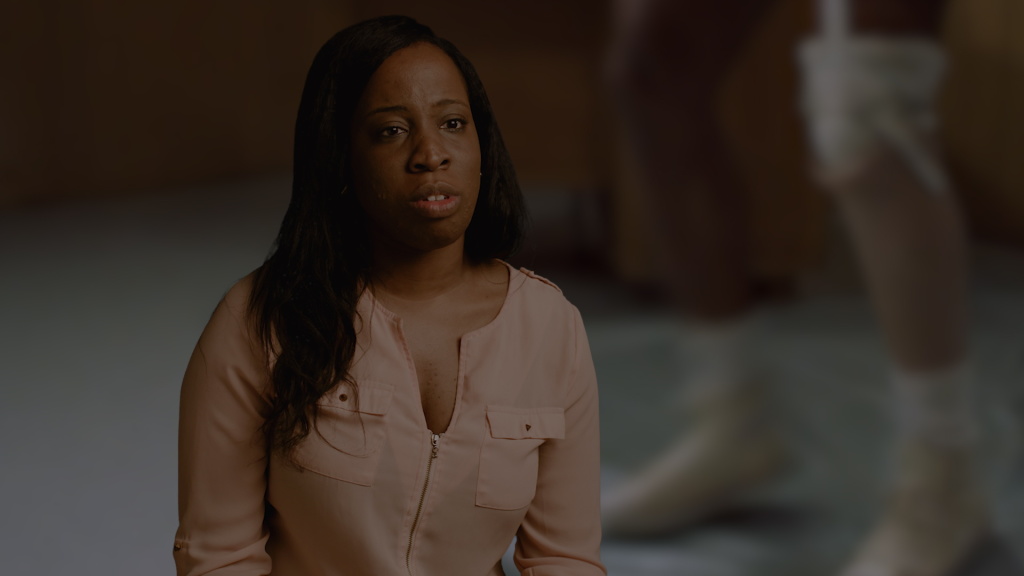
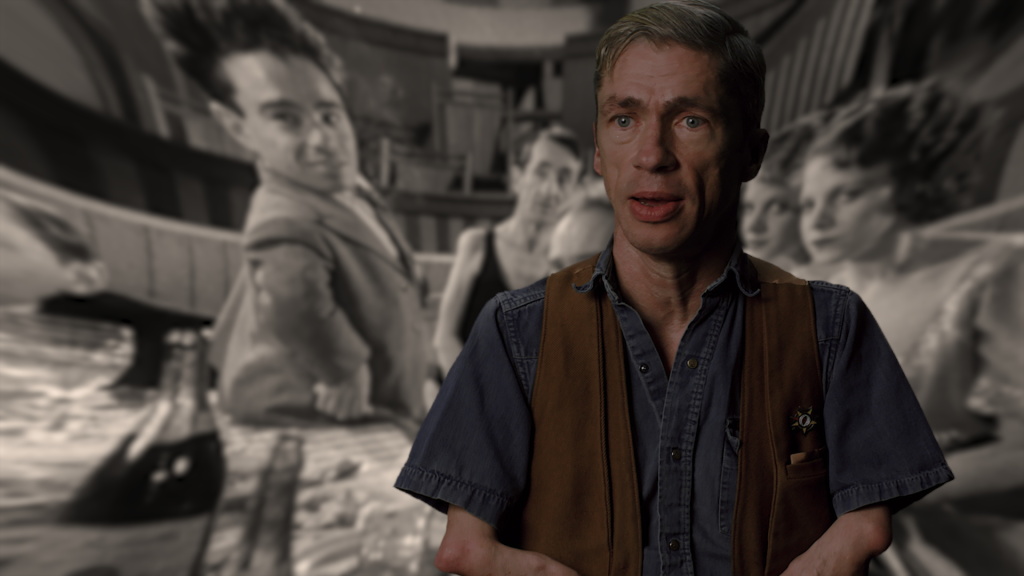
Andy Slater: It’s this whole fucked up thing where nothing is clear and they don’t have people in the administration that know how to work with artists. Let’s say you’re a musician and you get a song placed on a TV show and you get paid for that and then you get royalties. If you’re on social security, whether it’s SSI or SSDI, that’s not considered earned income and I think it’s the same way as if a museum wants to show your piece. They give you an artist fee, you still fill out a 1099, and you are taxed on that. But social security does not consider that earned income because you didn’t lobby for it, somebody approached you to basically ‘rent’ some of your art, something that you created. It’s so very tricky.
The fact that we don’t have a clear resource – it seems like through this conversation, we all still are trying to navigate this – and some of us have decades worth of time spent trying to figure this shit out and we just can’t do it. Does this whole screwed up, nebulous, broken system exist because the people in charge of maintaining it are incompetent? Or apathetic? Or they do it maliciously just to screw with you? It’s one of those things where I just get very jaded and bitter, like ‘they’re just fucking with us.’ They’re in charge of making our lives better and more sustainable, but they oppress us and they do nothing to help us perpetuate our quality of life or anything like that.
Anonymous: Somebody went to the pharmacy to get their medication that costs about $15,000 out of pocket. Usually, because of their community-based insurance, it’s free. This medication had no generic. This time the pharmacy says ‘you need to pay $2,000, that’s your copay.’ The person goes, ‘wait, I shouldn’t have a copay.’ It turns out that somehow this person got some fellowship money and they went on [Medicaid] Spenddown, and for them to be able to access this very expensive life saving medication, they need to pay $2,000 for it, per month. As Max said, medication can cost more than rent.
Max Guy: It’s more than my rent. Yeah, no joke. I have the answer to what you do. You get a credit card and you pay it off after 8 years, because I just did that.
Andy Slater: Being able to get a credit card!
Anonymous: Yeah, what if you don’t have credit?
Andy Slater: Yeah you need to show income before you get credit. It’s no win.
Anonymous: Max, such geniusness that you even thought of that, but again, are you surviving or are you thriving?
Sandie Yi: All these barriers also make professional development really hard. I think it’s also a reason the mainstream world seldom takes disabled artists’ work seriously. At the same time, disabled artists want to gain access to professional training and resources. So, it really impacts the way we talk about disability aesthetics. It’s taking a long time for us to have conversations about what the art history is that we are creating.
Andy Slater: Funders and organizations that offer professional development and those sorts of services, consider how that professional development, like a seminar or one-on-one, would look different between a disabled person and a non-disabled person. Find somebody who can relate, find a disabled person to help be the medium or administer the professional development. Because I don’t know how many times I’ve been in situations where somebody’s been trying to tell me ‘oh, this is how you do this, this is how you do that’ and like ‘actually, no, I’m blind and this website you’re making me go through is not accessible.’ It’s just a waste of time. If you know you’re going to have a grantee who is disabled, you’re going to need to consider their accommodations when it comes to these development services that you’re offering. That would make me feel so much better, if there’s some kind of representation, or some kind of acknowledgement of how to solve the problems that we may be facing with ableist structures or systems.
Anonymous: And disability numbers are gonna increase.
Andy Slater: Oh, yeah.
Anonymous: Substantially. Especially because of Covid and long-term side effects. This is not going to help a select few. It is going to help everyone.
Courtney Graham: Thank you for mentioning that. And I want to thank you all so much for your time. This has been really generative.
This discussion is based on personal experiences. If you or someone you know needs assistance with navigating the benefits systems, the below resources may help.
- Illinois Department of Human Services: Disability Determination Services; IDHS Helpline: 1-800-843-6154, TTY: 1-866-324-5553
- Social Security Administration:
- Disability Determination Process; Toll Free number: 1-800-772-1213, TTY: 1-800-325-0778
- Spotlight on Income from the Arts
- Spotlight on Special SSI Rule for Blind People Who Work
- Spotlight on Student Earned Income Exclusion
- Access Living: Information and Referral; Community Supports Team: CommunitySupports@accessliving.org, 1-312-640-2100
- Illinois Legal Aid Online
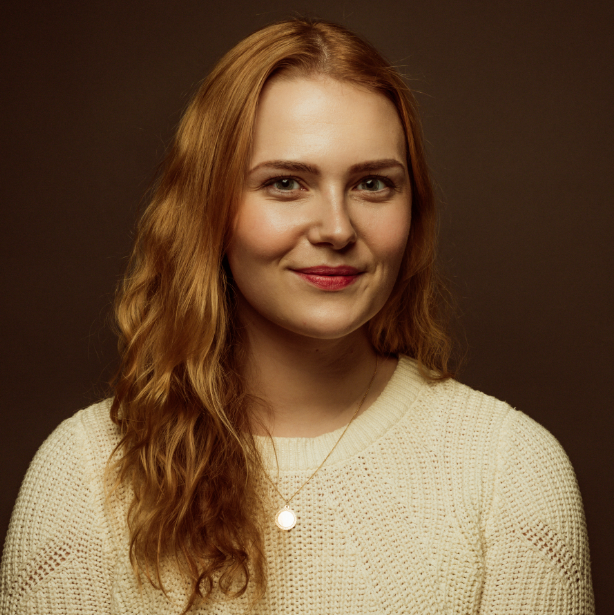
Courtney Graham is a Chicago-based writer and program director. Her writing and research focus on accessibility for people with disabilities in cultural spaces, exploring access, and spotlighting artists with disabilities. Courtney serves as the Director of Connectivity at the International Foodservice Manufacturers Association (IFMA). She completed her BFA at the University of Michigan and her MA at the School of the Art Institute of Chicago.
